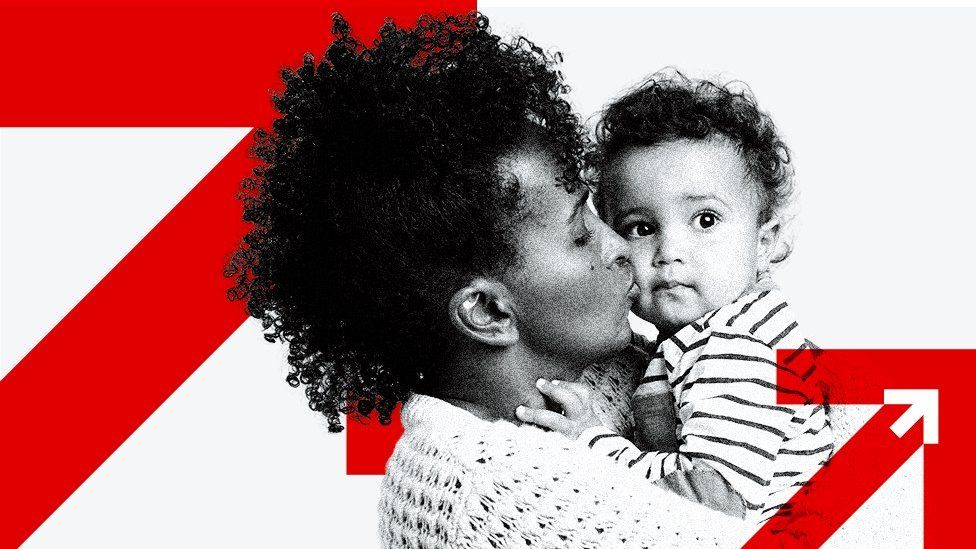

Millions of people are receiving payments to help with higher bills, with more to come.
Low-income households, pensioners and some disabled people are entitled to additional cost-of-living funds after the government extended a scheme it launched in 2022.
A committee of MPs is currently investigating whether the payments are supporting those most in need.
What cost-of-living payments are available?
Some groups are receiving payments to help with higher bills, including:
- £900 in total in three instalments. One was paid in spring with the next coming in autumn and then spring 2024 to households on means-tested benefits
- £300 for pensioner households in the winter
- £150 to people on certain disability benefits has been paid
The first instalment of £301 for those on means-tested benefits was received by about eight million people in late April and June.
Who is eligible for the £900 payment?
The payment, in three instalments, is available to households who receive the following benefits:
- Universal credit
- Income-based jobseeker’s allowance
- Income-related employment and support allowance
- Income support
- Working tax credit
- Child tax credit
- Pension credit
The payment reference on a recipient’s bank account was their national insurance number, followed by DWP COL.
The 1.1 million people who receive only working tax credit or child tax credit, rather than any of the other benefits, were paid slightly later than others.
People are not eligible for these payments if they receive the new-style employment and support allowance, contributory employment and support allowance, or the new-style jobseeker’s allowance – unless they get universal credit.
Anyone who thinks they should have received the help but did not should contact the office that pays their benefit or tax credits, or report it here.
To qualify for the latest instalment, people had to have claimed a benefits payment in earlier weeks, or received a payment for an assessment period ending between certain dates. Pensioner households may be able to have a new pension credit claim backdated.
None of these cost-of-living payments affect the tax you pay, or the benefits or tax credits you receive.
What help are disabled people getting?
Up to six million people on the following disability benefits received another £150:
- Disability living allowance
- Personal independence payment
- Attendance allowance
- Scottish disability payments
- Armed Forces independence payment
- Constant attendance allowance
- War pension mobility supplement
Those payments were made between 20 June and 4 July.
What help are pensioners getting?
Households that receive the winter fuel payment – which is worth £200-£300 and is paid to nearly all homes with at least one person of pension age – received an extra £300 in November or December 2022, and will get another £300 this coming winter.
Lower-income pensioners who claim pension credit get the money in addition to the support provided for those on benefits.
What cost-of-living payments have people already received?
Two payments totalling £650 were made in 2022 to more than eight million low-income households.
Payments of £300 were also paid to pensioners during last winter, and a £150 payment was also made to those with disabilities.
Some people would have received all of those payments, if they were eligible.
What other support have people had?
A £150 rebate, often through people’s council tax bill, was made last year. The Household Support Fund, which is distributed by local councils, helped vulnerable people, including giving fuel vouchers to those in need.
The discount was made automatically by energy suppliers in England, Scotland and Wales. However, there are no plans to repeat this in the coming winter.
They received a single payment of £600 starting in January, which was more than in the rest of the UK because a higher proportion of households use heating oil.
Direct debit customers in Northern Ireland had the money paid into their bank accounts. Other customers were sent a voucher.
What is the inquiry by MPs all about?
They are studying whether some have missed out on hundreds of pounds because they are just outside the qualifying criteria, and whether the package as a whole is sufficient for low-income families.
What else is the government doing to tackle energy prices?
The government launched an Energy Price Guarantee in October 2022, which limited a typical dual-fuel household’s annual energy bill to £2,500 throughout last winter.
The scheme, which applied to England, Wales and Scotland, is still in place if needed, but has not been required since July.
What about help for businesses?
A government scheme to cut energy bills for businesses finished at the end of March.
Heavy energy-using sectors, like glass, ceramics and steelmakers, get a larger discount than others.
Please include a contact number if you are willing to speak to a BBC journalist. You can also get in touch in the following ways:
If you are reading this page and can’t see the form you can email us at [email protected]. Please include your name, age and location with any submission.
